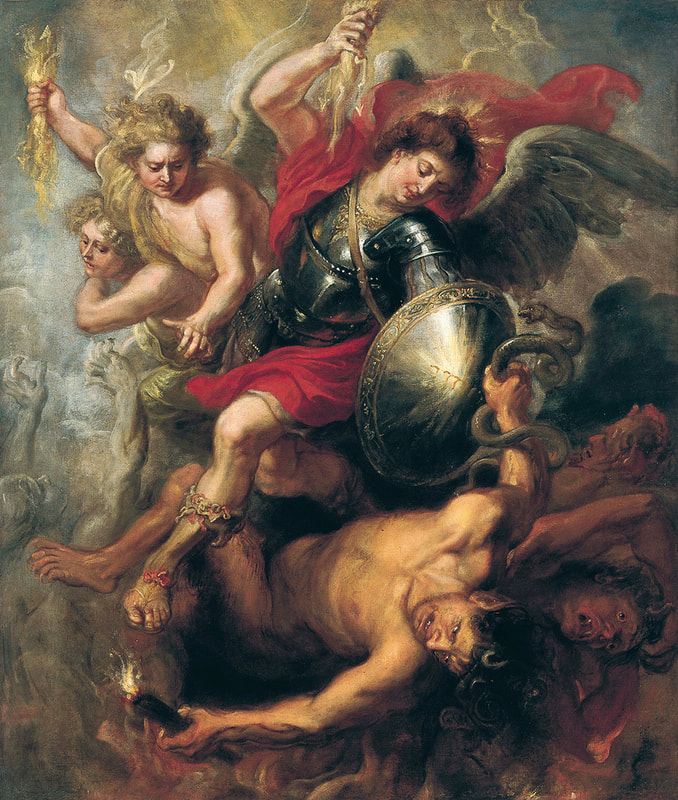|
What is evil? Is it simply the absence of good, the void which lacks the presence of God? Or is it a particular thing in itself, to be held up in contrast to good? A thing which can be positively willed and worked toward, and a thing that can drive and motivate us, as good can? In other words, are good and evil just two sides of the same coin, where one cannot exist without the other? Nowadays, we often don’t even bother thinking about it. We live in a sea of relativity, where everything is permissible and acceptable, and to say otherwise is derided as insensitivity. That’s not to say we don’t have room in ourselves to be more sensitive. Of course we do. It’s purely to say that we seem to have lost the sense that there is a “the good” which ought to be willed, and against which all ethics and morality ought to be judged. This sense of “the good” is certainly present in Scripture. Reading the Gospels, we are made acutely aware that there is a war at place—there is an ongoing spiritual battle between God and His enemy. In the desert, Jesus faces this enemy directly. Psychology tells us that no man actually wills evil. Man wills good, or whatever distorted or selfish idea of “good” he has at the time. But here stands The Enemy, who wills evil with every fiber of his being. Not just a distorted “good”, but literally wills the destruction of “good” itself, the destruction of all that is—the overthrow of God. This is who Jesus came to do battle with, for our sake. This war is easy to dismiss as pure folklore and fairy tale. The incidents we see in the Gospels of Christ casting out demons are discarded as simply ancient ignorance—as a lack of modern medical knowledge. Had Jesus lived in the present day, he would have reacted quite differently to these people who were clearly ill, and not possessed at all. Guardini tells us this attitude is ultimately driven by the very same enemy that Christ wages battle against. Unable to defeat God in direct conflict, the enemy turns to us and sows doubts hostility toward the very idea that God is on our side—to the very idea that there could be an enemy who stands against all that is. Like he tempted Jesus in the desert, the enemy whispers in our ear that there is no “good” at all. And by tearing down our conception of “good,” by turning us away from “The Good,” which is God, the enemy moves closer to his goal of total destruction. Only having failed to bring about that destruction on his own, this time he uses man as the agents of that destruction. “Jesus brought Satan to a standstill. He alone was able to stare him down. To the extent that we succeed in looking with Christ’s eyes, we too shall see him; to the extent that Christ’s heart and spirit become alive in us, we shall dominate him.”
-Romano Guardini ("The Lord")
0 Comments
|
Series Info
Every day of Lent, I am writing a reflection piece on two chapters of "The Lord" by Romano Guardini. If you'd like to read or follow along, you can find the full calendar of where we're at below, or Click Here for the main landing page. Archives
April 2020
Categories
All
|

 RSS Feed
RSS Feed